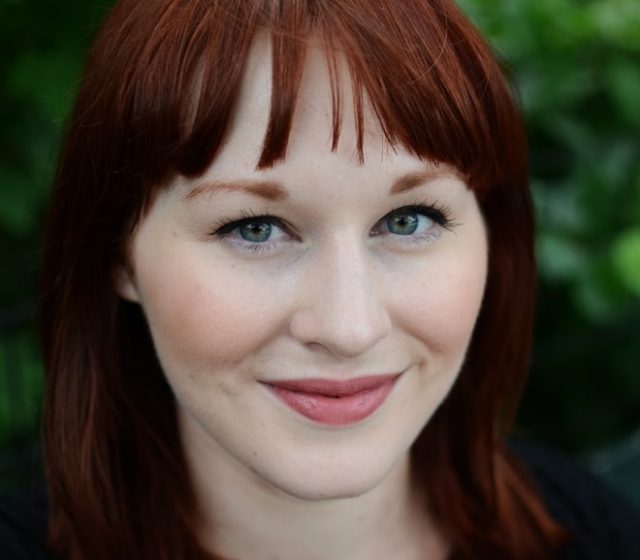
Coaching Fellow Lindsay Woodward describes her chosen profession as “stealth influencing.” Read on for more insights on the rewarding life of a vocal coach!
People are often confused about exactly what a “vocal coach” is. How would you describe what you do?
I think this can be confusing because there are so many different things we do, depending on the situation and what your strengths are. But the bottom line is, we exist to help everybody else out and make sure that whatever project we’re working on comes together to everybody’s satisfaction. Sometimes you work on the beginnings of a project, helping a singer learn their pitches and rhythms and words, and sometimes you work on the middle, playing rehearsal piano and making sure the maestro gets what s/he needs out of the singers (and vice versa!), and sometimes you work on the end product, playing in the orchestra, or helping out with warm-ups or doing a little backstage conducting. It’s an exciting job because there are so many different facets and different ways that you can influence the show. But it’s stealth influencing; you’re not the one yelling at people or being overt, it’s more behind-the-scenes, nudging things into place.
When did you begin playing the piano, and how did you transition into collaborative piano?
I’ve been playing for SO LONG now that my piano skills are a legal adult. But there are always technical challenges to overcome…and the operatic repertoire is unending and ever-expanding.
Looking back, it makes so much sense that I would end up working with singers. I started accompanying for choirs in junior high, and I started playing for voice lessons in my sophomore year. It wasn’t until college that I fell in love with opera. I’d grown up going to plays, but hadn’t connected the dots between my love for theater and classical music until I was in the middle of it.
What’s your favorite thing about working with singers?
I think my favorite thing is that they’re all so individual. No two singers communicate the same way, and it’s a fun challenge to figure out how to get your message across. I like to think of it as translating.
What have you found to be the biggest challenge about your job?
It’s not a very exciting answer, but just balancing your life. Schedules change from day to day, and it’s hard to have a normal routines for anything: sleep, meals, exercise… all the things that help you stay mentally healthy. Every time I feel like I’ve cracked the code, I end up leaving for a new gig or some new factor gets thrown in. It’s somewhat a constant struggle, so I’m always trying to be mindful and take care of myself.
What’s your favorite part (or parts) of the preparation/rehearsal/performance process(es)?
I kind of love every part of the process. It’s such a whirlwind from start to finish, adding layers just as (or just before) the one before is set, up until the performances; and then you’re on to the next score. And I love that about it too; studying so many different scores in a year. I might get bored if I just did one composer or one style for the rest of my life, but it’s so refreshing to go from Mozart to Puccini to Dvořák to Wagner.
Add Comment